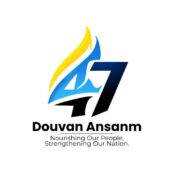INTRODUCTION TO PURCHASING & COST CONTROL
INTRODUCTION TO PURCHASING & COST CONTROL
Introduction/Title: In the current environment of an uncertain local economy, with the reduction in discretionary income, timidity of investors and heightened competition, it is essential that all operations such as yours develop and execute appropriate strategies to better manage costs and thus enhance profitability. It is with this in mind that I have developed the “Introduction to Purchasing & Cost Control” training programme, which I am now pleased to offer to you.
Overview: The training will consist of six (6) modules, over a three (3) day period. The modules are as follows:
- The Right Supplier….my perfect fit
- Controlling
- Basic Income Statements
- Recipe Costing
- Labour Cost Control
- Cost Reduction Strategies
Module 1 focuses on what is procurement and different ways that items may be procured. A main feature in this module is an examination of product specifications and the advantages that such specifications provide to buyers and users alike
Module 2 provides participants with an understanding of what is controlling, the elements of basic control systems and discusses benchmarking.
Module 3 provides participants who may not have done Accounts with an examination of the sections and sub sections of a basic income statement, using the US Restaurant’s standard. The only previous knowledge required here would be basic arithmetic skills, especially re calculations of percentages.
Module 4 highlights the importance of standard recipes, particularly as a control tool and then provides practical instruction in costing these recipes. It also details how to use the costs derived to more accurately set selling prices.
Module 5 focuses on Labour Cost Control systems. It highlights the importance of establishing productivity standards and the use of manning guides for more cost effective scheduling.
Module 6 as the penultimate session, seeks to synthesize the information shared in Modules 1 to 5 into effective cost reduction management systems which participants should be able to begin developing after these sessions.
Target audience: This training should be attended by the entrepreneurs and managers in the hospitality industry, as well as related SMEs.
Objectives:
By the end of the training programme, participants should:
- Understand what the different ways of procuring items are.
- Understand the importance of specifications and be able to develop basic ones for their areas.
- Develop basic control systems in their operations.
- Explain what an income statement is, inclusive of main sections.
- Be able to cost standard recipes for the operation.
- Be able to develop productivity standards for their Stores/Departments
- Be able to develop simple cost reduction programmes in their Stores/ Departments
Course Length: The teaching time would be six hours, plus one hour for lunch daily, for three (3) days.
Recent Posts
Happy 47th Anniversary of Independence!
Tags




